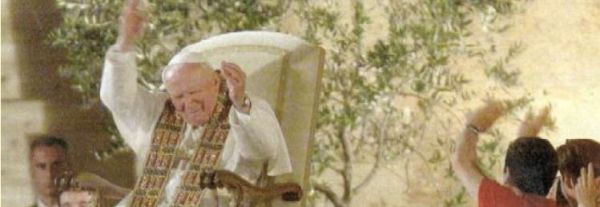Spiritual life needs enlightenment and guidance. This is why Jesus, in founding the Church and sending the Apostles into the world, entrusted them with the task of teaching all nations, as we read in the Gospel according to Matthew (Mt 28:19-20), but also with the task of "preaching the Gospel to the whole creation", as the canonical text of Mark's Gospel says (Mk 16:15). St Paul also speaks of the apostolate as "enlightening everyone" (Eph 3:9).
But this work of the evangelising and teaching Church belongs to the ministry of the Apostles and their successors and, in a different capacity, to all the members of the Church, to continue forever the work of Christ the "one Master" (Mt 23:8), who brought to humanity the fullness of God's revelation. There remains the need for an interior Master, who makes the teaching of Jesus penetrate the spirit and heart of mankind. It is the Holy Spirit, whom Jesus himself calls the "Spirit of truth", and whom he promises as the One who will guide into all truth (cf. Jn 14:17; 16:13). If Jesus said of Himself: "I am the truth" (Jn 14:6), it is this truth of Christ that the Holy Spirit makes known and spreads: "He will not speak of Himself, but will tell all that He has heard . . . he will take of mine and proclaim it to you" (Jn 16:13-14). The Spirit is Light of the soul: "Lumen cordium", as we invoke it in the Pentecost Sequence.
2. The Holy Spirit was Light and inner Master for the Apostles who had to know Christ in depth in order to fulfil their task as his evangelisers. He was and is so for the Church, and, in the Church, for believers of all generations, and especially for theologians and teachers of the Spirit, for catechists and leaders of Christian communities. It has been and is also for all those who, within and outside the visible confines of the Church, wish to follow God's ways with a sincere heart, and through no fault of their own find no one to help them decipher the riddles of the soul and discover the revealed truth. May the Lord grant all our brothers and sisters - millions and indeed billions of men - the grace of recollection and docility to the Holy Spirit in moments that can be decisive in their lives.
For us Christians, the intimate teaching of the Holy Spirit is a joyful certainty, founded on Christ's word about the coming of the 'other Paraclete', whom - he said - 'the Father will send in my name. He will teach you all things and bring to your remembrance all that I have spoken to you" (John 14:26). "He will guide you into all truth" (Jn 16:13).
3. As is clear from this text, Jesus does not entrust his word only to the memory of his hearers: this memory will be assisted by the Holy Spirit, who will continually revive in the apostles the memory of events and the sense of the mysteries of the Gospel.
In fact, the Holy Spirit guided the Apostles in the transmission of the word and life of Jesus, inspiring both their oral preaching and writings, as well as the writing of the Gospels, as we have seen in the catechesis on the Holy Spirit and Revelation.
But it is still He who gives the readers of Scripture the help to understand the divine meaning included in the text of which He Himself is the inspirer and main author: He alone can make known "the depths of God" (1 Cor 2:10), as they are contained in the sacred text; He who was sent to instruct the disciples on the teachings of their Master (cf. Jn 16:13).
[Pope John Paul II, General Audience 24 April 1991]












